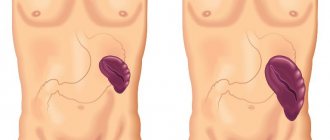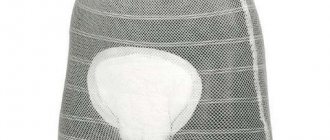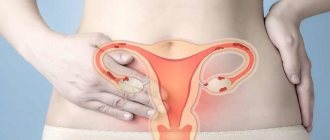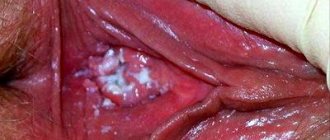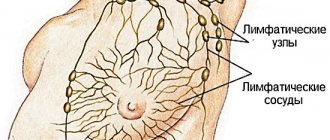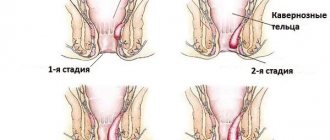Painful urination is a very unpleasant but widespread problem. In the vast majority of cases, problems with the process of emptying the bladder occur specifically in women, this is due to the anatomical features of their body structure. The length of the female urethra is several times shorter than the male one, so infections and pathogenic bacteria penetrate the genitourinary system much faster and easier.
Despite the fact that nature itself “took care” of the safety of the male body, representatives of the stronger sex can also suffer from pain when urinating.
In medicine, there is such a thing as dysuria - a term for urinary disorders. This includes various kinds of unpleasant symptoms, including pain when emptying the bladder. You need to understand that any discomfort is a signal from the body in case of danger. Let's try to figure out what our body signals at the moment when dysuria occurs.
Read more about the causes of this unpleasant phenomenon
Content:
- Read more about the causes of this unpleasant phenomenon
- Symptoms of painful urination
- Painful urination in women
- Painful urination during pregnancy
- Painful urination in men
- Painful urination in children
- Diagnostic techniques
All causes of problems with urination can be divided into two groups - infectious and non-infectious. In the first case, we are talking about pathogenic microflora, which penetrates the genitourinary system through the urethra.
Often, with infections, the above-described symptoms are also accompanied by increased body temperature, chills, fever, and deterioration in general well-being. In some cases, the problem develops very quickly, and sometimes the intensity of symptoms increases gradually.
Along with the manifestation of alarming symptoms, there is also a general deterioration in health. Anxiety, nervousness, headaches, weakness, apathy, decreased appetite, and malaise may occur.
Non-infectious causes of pathology include bladder tumors, kidney stones, inflammatory processes inside the abdominal cavity, a sharp decrease in immunity, and the like. In women, discomfort can be triggered by mechanical irritants, for example, too active sex or an examination by a gynecologist.
In addition, discomfort is caused by an allergic reaction of the body. The irritant may be underwear made of synthetic materials, pads and intimate wipes with fragrances, some types of condoms, unsuitable spermicidal gels and lubricants. In this case, pain during urination disappears immediately after the irritant is eliminated.
Discomfort when emptying the bladder is also an indirect sign of disorders of the gastrointestinal tract or pathologies of the musculoskeletal system. In this case, neighboring organs put pressure on the hollow organ, which leads to pain.
Prevention
The development of pathologies that cause pain, burning and itching when urinating can be prevented. To do this, women and girls, regardless of age, just need to follow the advice of experts. Namely:
- Take good care of your genitals and follow the rules of hygiene.
- Wear high-quality underwear made from natural materials.
- Use contraception during sex, avoid casual relationships, and do not change partners frequently.
- It is advisable to buy personal hygiene products (pads, tampons) without fragrances.
- Eat sour and spicy foods, smoked foods, fatty foods less often, and do not eat too many sweets.
The most important thing is to visit a gynecologist at least twice a year. Read more and study information that will allow you to easily maintain women's health and beauty not for a week or a month, but for entire decades.
Symptoms of painful urination
The main signs of painful urination:
- pain and discomfort directly during the process of emptying the bladder or immediately after it;
- aching pain in the lower abdomen, periodically intensifying;
- spread of pain in the pubic area to the lumbar region, groin, abdomen (sometimes aching pain appears in the legs);
- sharp pain in the urethra;
- change in the color of urine (it becomes cloudy, unnatural color, mixed with mucus or blood);
- urine has a strong unpleasant odor;
- sexually active patients experience discomfort during the act of love.
Pain during urination is located in the pubic area, spreading to the suprapubic area. Unpleasant sensations may intensify due to burning in the urethra. Let's try to identify and systematize the symptoms, the manifestation of which is a reason to listen more carefully to your body and visit a doctor. These symptoms can be classified as signs of many ailments. Most often we are talking about cystitis, urolithiasis in men, infections, fungi and even inflammation of the appendix.
Which doctor should I contact?
The presence of discomfort or pain when urinating requires contacting:
- urologist - a specialist who treats diseases of the genitourinary system;
- venereologist - a doctor who treats sexually transmitted diseases;
- andrologist - a specialist who treats diseases of the male reproductive system;
- gynecologist - a doctor who treats diseases of the female reproductive system.
Depending on concomitant pathologies (diabetes mellitus, etc.), consultation with other specialists may be required.
Consultation with these specialists includes a medical history and laboratory tests that allow you to determine the cause of pain and choose the appropriate treatment tactics.
Painful urination in women
Susceptibility to various diseases of the genitourinary system is justified by the anatomical features of the female body. A short urethra is an easily overcome obstacle for germs and bacteria. Most often, various problems are provoked by basic violations of personal hygiene rules.
An attack by pathogenic microflora can cause cystalgia, a disease that leads to disruption of blood and lymph flow in the pelvic organ system.
In this case, involuntary urination during sudden movements or laughing or sneezing is added to painful urination. Additional symptoms of the pathology are pain during sexual intercourse, copious discharge from the urethra, sometimes mixed with blood.
Difficulty emptying the bladder also indicates kidney problems. For example, with urolithiasis or pyelonephritis, there is difficulty urinating, accompanied by acute pain and stinging. Such symptoms absolutely cannot be ignored, since without proper therapy the disease will only develop.
Pain when going to the toilet “smallly” occurs with vaginitis - an acute inflammatory process in the vagina. The disease can occur against the background of a sharp decrease in local immunity, with mechanical damage to the mucous membrane, followed by infection, as a result of hormonal imbalance. Most often, vaginitis is diagnosed in pregnant women or women who have reached menopause. Other symptoms of the disease are heavy vaginal discharge mixed with pus, swelling of the external and internal genital organs, severe pain and increased body temperature.
Polyps and tumors inside the urethra can also cause discomfort. At first, just discomfort or a slight burning sensation appears, later - discharge with droplets of pus and blood. The latter already indicates an advanced stage of the disease. Pain during urination in women occurs for various reasons, but it is important to respond to an alarming symptom in a timely manner.
How is diagnostics carried out?
Successful treatment and, first of all, diagnosis largely depend on the underlying cause of the disease. Only a qualified doctor can identify it: a gynecologist, urologist or venereologist. One way or another, to begin with, the doctor “paints” a clinical picture for himself, studies the anamnesis, and then prescribes tests for subsequent laboratory research.
If pathologies of the urinary system occur, a woman must pass and undergo:
- urine analysis, vaginal microflora, including STIs;
- cystoscopy, ultrasound examination of the bladder, kidneys;
- tank culture of urine and vaginal microflora;
- tests to determine the level of leukocytes, ESR.
The source of pain in the bladder can be very dangerous pathogens. Therefore, it is possible that, in addition to a nephrologist, gynecologist and urologist, you will also have to visit a dermatovenerologist.
Painful urination during pregnancy
Pain during urination and frequent urge to go to the toilet can be explained by an enlarged uterus, which begins to put more and more pressure on the hollow organ. But you shouldn’t take unpleasant symptoms too lightly, attributing them to pregnancy. Signs that are a reason for an emergency visit to the doctor:
- change in pressure and volume of the jet;
- sharp pain when going to the toilet;
- changes in the color and odor of urine;
- the appearance of purulent or bloody spots;
- incontinence.
Such phenomena occur with infections of the genitourinary system, tumors and stone formation. During pregnancy, the immunity of the pelvic organs may decrease due to hormonal changes in the body, so the expectant mother should be especially attentive to her health.
Diagnostic measures
Statistics on diseases of the urinary system in women show that in 95% of cases cystitis and urethritis are caused by E. coli. But one assumption is not enough to start treatment. If a woman consults a doctor with a complaint of pain and pain during urination, she will be advised to submit her urine for bacteriological examination. Diagnostics are performed within 3-7 days. This technique is preferable, as it allows not only to identify the pathogen, but also to find out its reaction to standard drugs.
In addition to bacteriological examination, the patient is recommended:
- polymerase chain reaction, necessary to identify the pathogen;
- microscopic examination of a smear;
- enzyme immunoassay blood test to establish immunity to pathogens;
- Urinalysis according to Nechiporenko and general.
Painful urination in men
Symptoms of the same diseases in men and women can manifest themselves completely differently. For example, with urolithiasis, the process of urination is accompanied by sharp throbbing pain not only in the genital organ itself, but also in the perineum.
The stream may be uneven and stop suddenly, until the bladder feels completely empty.
Acute or chronic inflammatory processes of the prostate gland always occur with disturbances in the urination process such as burning, frequent urges, a feeling of incomplete emptying of the bladder, pain in the lower back and groin, increased body temperature, and difficult urination. Urine may change color and odor, become cloudy, with impurities and sediment.
Painful urination is a consequence of the development of sexually transmitted infections:
- gonorrhea;
- trichomoniasis;
- chlamydia;
- candidiasis.
In this case, discomfort during the act of urination is caused by swelling of the head of the penis. This is followed by severe pain in the groin and lower back, the urine acquires a sharp, unpleasant aroma, and purulent or cheesy discharge appears from the urethral canal.
Men may experience pain when urinating due to excessive exercise or certain types of injury. Too tight underwear is also considered a cause of the unpleasant phenomenon.
Drug treatment
In case of acute symptoms, to eliminate burning sensation and frequent urge to urinate, it is necessary to avoid sour, salty, spicy foods and alcoholic beverages. It is recommended to take a No-shpa or Spazmalgon tablet, and then visit a doctor for a diagnosis. The doctor prescribes treatment depending on the causes of unpleasant symptoms:
- for inflammatory processes, antibiotics are prescribed (Cefixime, Norfloxacin);
- for allergic burning and itching, you need to take antihistamines (Zodak, Tavegil);
- when urolithiasis is detected, it is recommended to drink plenty of alkaline (for oxalates) or sour (for urates) drinks;
- in case of the neurological nature of the disease, herbal sedatives (Sedavit, Fitosed) are recommended;
- If there is a strong burning sensation during or after urination, drugs with diuretic properties (Urolesan, Cyston) are prescribed.
The choice of treatment method directly depends on the disease that caused the burning sensation. Examples of drugs that are used for various pathological processes:
- Inflammation of the genitourinary system . Antibacterial drugs are prescribed internally to destroy the pathogen.
- Thrush (candidiasis) . Local antifungal drugs are used (Livarol suppositories, Polygynax). The course of treatment is 10 days.
- Trichomoniasis . Antipathogen medications are prescribed for oral administration (Metronidazole, Nimorazole). Duration of treatment – 7 days.
- Gonorrhea . Antibacterial drugs are used in the form of tablets (Unidox, Abaktal). Duration of therapy is 5-10 days.
- Chlamydia . Several types of antibiotics are used (Pevloxacin, Vilprofen), interferons (Amiksin, Neovir), immunomodulators (Derinat, Timalin), hepatoprotectors (Karsil, Legalon), probiotics (Bifikol, Enterol). The course of treatment is 10-14 days.
Painful urination in children
Painful urination occurs not only in adults, but also in children. There are several reasons for the unpleasant symptom - cystitis, infection of the urethra, kidney disease, salts and crystals in the urine, and the like. In parallel with this, complete or partial urinary incontinence (especially during sleep), frequent urge to go to the toilet, discharge from the urethral canal, and a strong smell of urine are possible.
Most often, cystitis of bacterial or viral origin is diagnosed in pediatric patients.
The most striking symptom of the disease is sharp pain during the act of urination. Parents can easily notice this from the reaction of a child who cannot speak. In the case of urolithiasis, the pain spreads to the lower abdomen, lower back and groin area, and always intensifies when going to the toilet. The child becomes lethargic, inactive, loses appetite
Children may also develop vesicopelvic reflux. With this pathology, urine from the bladder follows not into the urethra, but into the pelvis - the process is accompanied by acute pain in the lumbar and navel areas. Hormonal changes in the teenage body can trigger the formation of crystals in the urine. Small pebbles with sharp edges scratch the walls of the urethral canal, causing pain and burning.
Parents should be attentive to the health of their children. If you notice signs of disturbances in the urination process, you should immediately seek advice from a specialist who can identify the cause of the pathology and prescribe effective treatment.
Folk remedies
Pathologies that cause burning during urination can be treated with medicinal plants and other traditional medicine. Before treatment, it is important to know that the cause of these symptoms is not urolithiasis, because some herbs can provoke the movement of stones, an attack of renal colic or blockage of the urinary tract. All treatment carried out at home must be agreed upon with the attending physician.
The most effective folk recipes for burning during or after urination:
- Rose hip decoction . Grind rosehip root (2 tbsp), pour boiling water (250 ml) over it. Leave the decoction for 2 hours, then strain, divide into 4 servings and take 20 minutes before meals until the unpleasant symptoms disappear.
- Aspen buds . Boil aspen buds (20 g) in water (250 ml) for 15 minutes. Then wrap it in a towel for 2 hours, then strain. Take the decoction three times a day, 2 tablespoons, until the burning sensation goes away.
- Lingonberry decoction . Place crushed dry lingonberry leaves (1 tbsp) in boiling water (250 ml) and boil for 15 minutes. After the broth has cooled, strain and divide into three servings. Drink before meals for 7-10 days.
